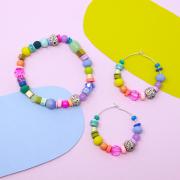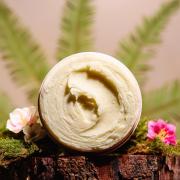Resident health and beauty expert Laura Lewis goes under the needle to see if semi-permanent make-up really is as painful as it sounds
Imagine eyeliner that never smudges, lip liner that never bleeds into those pesky lines and eyebrows that don’t wash off in the pool. It is all possible! The art of tattooing make-up onto faces has been around for centuries, but recent developments have meant that techniques are far superior, and the advent of finer needles and high quality pigments makes for a safe, semi-permanent application of make-up.
It is vital to do your research when planning such a delicate procedure – ideally you are looking for someone artistic, passionate and dedicated to customer service. I spoke to Susan Coombe, who has spent the last seven years perfecting eyebrows and assessing eyeliners, and on talking to her, she has an obvious passion for her career.
“As soon as I started my training I knew that this career was for me. It has not always been an easy choice - tattooing someone’s face for the first time is incredibly nerve wracking - but it is extremely rewarding, I couldn’t think about giving up as I feel a huge responsibility to my clients.”
The advent of websites selling vouchers and discount deals has meant that many people choose to snag a bargain treatment based on a cheap price.
“You should be very wary of cheap practitioners who could implant dangerous, inferior quality pigments”, says Susan. “These could lead to very serious infections and allergic responses that can take many years to correct”. Worryingly she goes on to say, “I correct a lot of poor work from inexperienced practitioners. Many people have to have badly designed ‘fashion’ eyebrows corrected or lasered out at great expense. It is harder to get a great result once poor work has been put in the skin.”
The pitfalls of choosing an inexperienced or under-confident practitioner doesn’t bear thinking about after all, a botched eyebrow wax will grow back, but wonky eyeliner could last one to three years. Another thing to consider - do you really want to be treated by someone who hasn’t done any tattooing in over a month? Practitioners may offer semi-permanent make-up alongside a dozen other treatments.
Susan agrees, “I have been practicing for nearly seven years, five days a week and only perform this type of procedure. Some practitioners have this as a side line and therefore only perform very few procedures.”
A micro pigmentation specialist can gain a qualification to practice in a relatively short amount of time, but ongoing professional development is a must in the industry. As a result there are many services available including nipple reconstruction and the camouflage of scar tissue either from accidents, surgery, or cosmetic procedures.
But what we all really want to know is - does it hurt? Susan tactfully says: “Discomfort really varies from client to client, I am particularly light handed but you can’t get away from what we are doing. My clients would describe it as uncomfortable more than painful”. There are very strict laws surround the use of anaesthetics in the UK, and as a result, Lidocaine creams are used to great effect, making the procedure much more comfortable.
------------------------------------------------------------
Laura’s tried and tested
Sitting in the luxurious Changes Clinic waiting room in Portsmouth it dawned on me what I was about to have done. I felt nervous! On meeting Susan and after a thorough consultation, which included a medical questionnaire and pictures of my current make-up I felt safe in her hands.
Two anaesthetics are applied, but they do wear off, so re-application was essential throughout. I won’t lie, in parts the sensation of the treatment varied from nothing to tickly, stingy and sore, but it was only in the last ten minutes that I felt ready for a break. Sure enough Susan realised I had reached my limit, and it was time for the after pictures. After some slight swelling and itchiness, the initial intense hue of the liner has settled in to a softer shade, and I’ll pop back for a check and possible top up in six weeks. I love it, what a difference! I just need to remember to stop scrubbing at it – it’s not going to budge with eye make-up remover!
------------------------------------------------------------
Laura’s top tips
Expect to return for a colour boost every 12-18 months to keep the pigment and design looking fresh.
Practitioners should be insured to practice and have a good relationship with their training school and peers.
You should check that the practitioner has been around for a while, that you have seen a portfolio of their own work and ideally have heard/seen one satisfied client or more.
Expect not to wear make-up on the area for three full days.
Don’t plan to have a treatment done just before a big occasion. There will be slight swelling and an itchy sensation while the area heals.


























